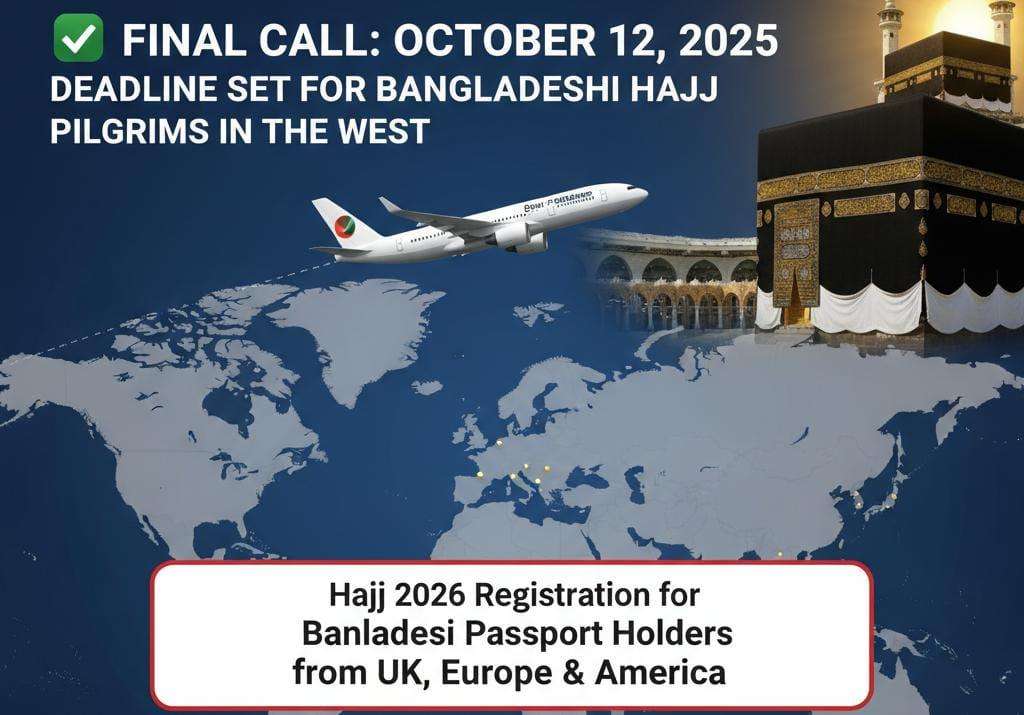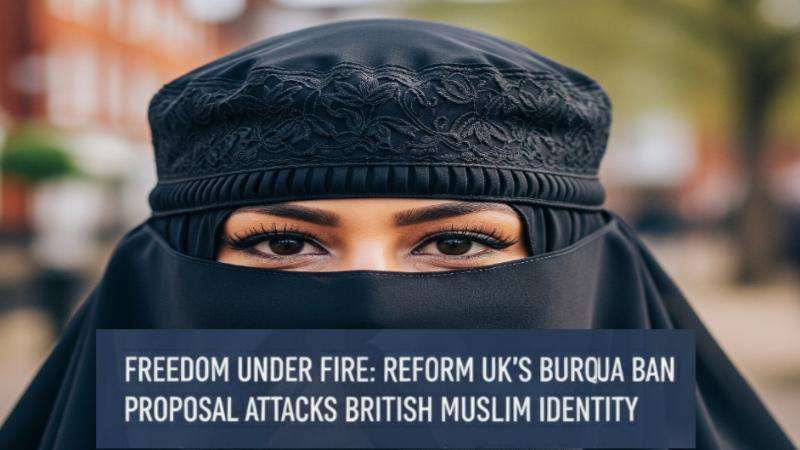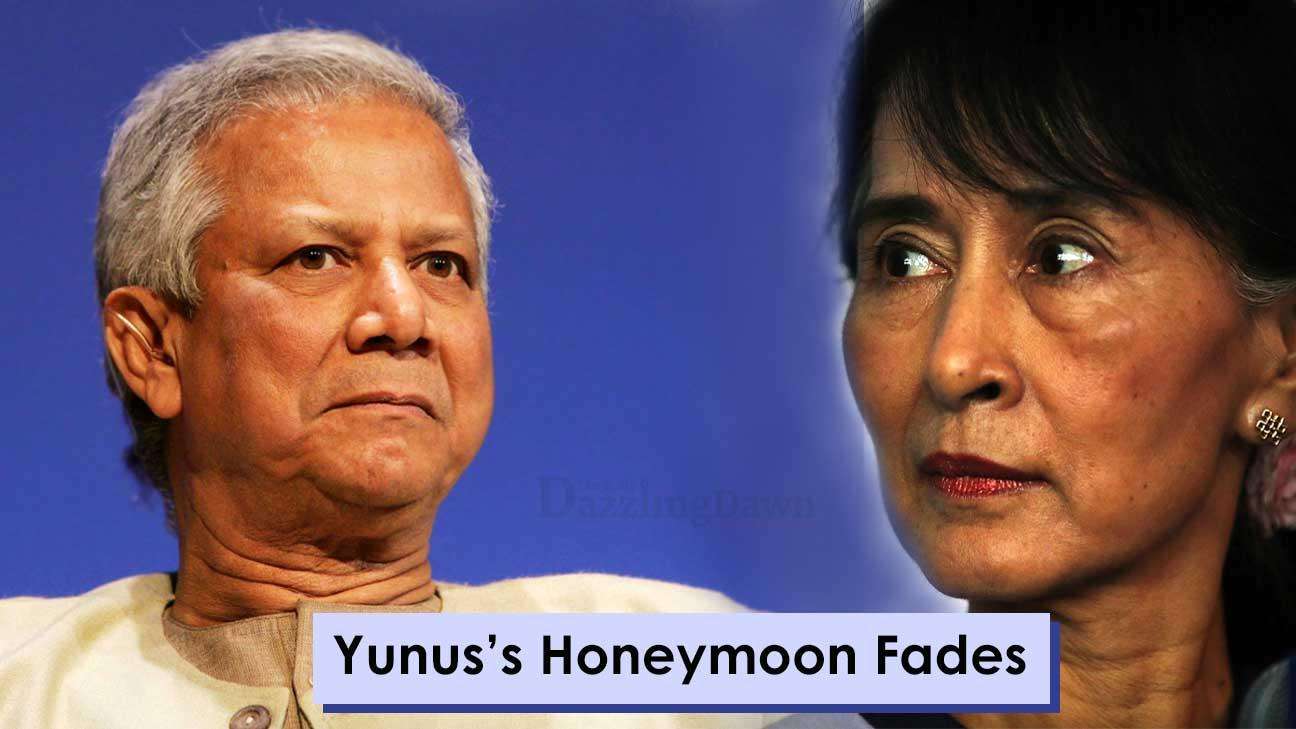In a deeply concerning move for British Muslims and advocates of religious freedom, Reform UK is once again thrusting the divisive issue of a burqa ban to the forefront of national politics. This renewed push, championed by the party's sole female MP, Sarah Pochin, directly challenges the fundamental human rights of Muslim women to practice their faith and choose their own attire. The proposal, framed by Mrs. Pochin as a matter of "British culture" and "public safety," is viewed by many as a direct assault on religious liberty and a dangerous step toward alienating and marginalizing a significant segment of the UK's population, Daily Dazzling Dawn realized.
The debate, which risks reigniting an internal party row that saw former Reform chairman Zia Yusuf quit over the issue, is not a new one. It has surfaced repeatedly in European countries, and has consistently been met with strong opposition from human rights organizations and legal experts. The core of the issue is not what some see as a cultural clash, but a clash of values: the right of an individual to express their identity and faith versus the state's desire to impose a singular, secular norm.
The argument for a ban often rests on the flawed premise that the burqa is a sign of oppression. However, this perspective ignores the diverse realities of Muslim women. For many, wearing the burqa or niqab is a conscious choice, an act of piety, and a deeply personal expression of their faith and identity. It is a decision rooted in theological understanding and a desire for modesty, not a symbol of subjugation. The notion that a government-mandated ban would "free" these women is a paternalistic and discriminatory one. True freedom lies in the ability to choose, not in having one's choices dictated by political figures who do not share their faith or lived experience. A ban would not liberate these women; it would likely force them to stay indoors, limiting their participation in public life and work, and pushing them further to the margins of society.
Furthermore, the "public safety and security" argument is a flimsy pretext for religious discrimination. The number of women who wear a full face veil in the UK is minuscule, and there is no credible data to suggest that this practice poses a significant security threat. The notion that "anybody" wearing a burqa could be a "terrorist" or a "spy" is not only a gross generalization but also a dangerous piece of Islamophobic rhetoric. Such language fuels hatred and normalizes hostility towards Muslim communities, making them more vulnerable to harassment and violence. It is this rhetoric, not the clothing itself, that is a genuine threat to public safety and social cohesion.
Numerous studies and legal precedents in Europe have shown that burqa bans have failed to achieve their stated goals of promoting integration or women's rights. Instead, they have often resulted in legal challenges and increased social division. The European Court of Human Rights, while upholding the French ban in 2014 based on a vague notion of "living together," acknowledged that such bans could consolidate stereotypes and encourage intolerance. Other international human rights bodies have consistently viewed such bans as disproportionate and discriminatory.
The UK, with its long-standing tradition of religious tolerance and multiculturalism, must reject this dangerous and divisive proposal. The government's current position, as stated by ministers like Kemi Badenoch, is that a burqa ban is not a policy, and it is crucial that this stance is upheld. The Human Rights Act 1998, which incorporates Article 9 of the European Convention on Human Rights, guarantees the right to freedom of religion, including the right to express one's faith through dress. Any move to restrict this right would be a regressive step, undermining the very principles of fairness, liberty, and respect for diversity that are central to a modern, open society. The burqa is not a problem to be solved; it is a human right to be protected.The proposal by Reform UK to ban the burqa has triggered a wave of anxiety within Britain's diverse British Bangladeshi, British Pakistani, British Indian, British South Asian, BAME, and wider Muslim communities. For many, this isn't just a policy debate but a direct threat to their sense of belonging and religious freedom. There is a deep-seated fear that such a ban would not only marginalize Muslim women but also normalize hostility and discrimination against the entire community. Concerns extend beyond the specific garment to the broader Islamophobic rhetoric that often accompanies these debates, which communities believe fuels division and makes them more vulnerable to harassment and violence. The proposal is seen as a regressive step that undermines the UK's tradition of religious tolerance and multiculturalism, and many feel it distracts from genuine issues while scapegoating a minority for political gain.








.svg)


